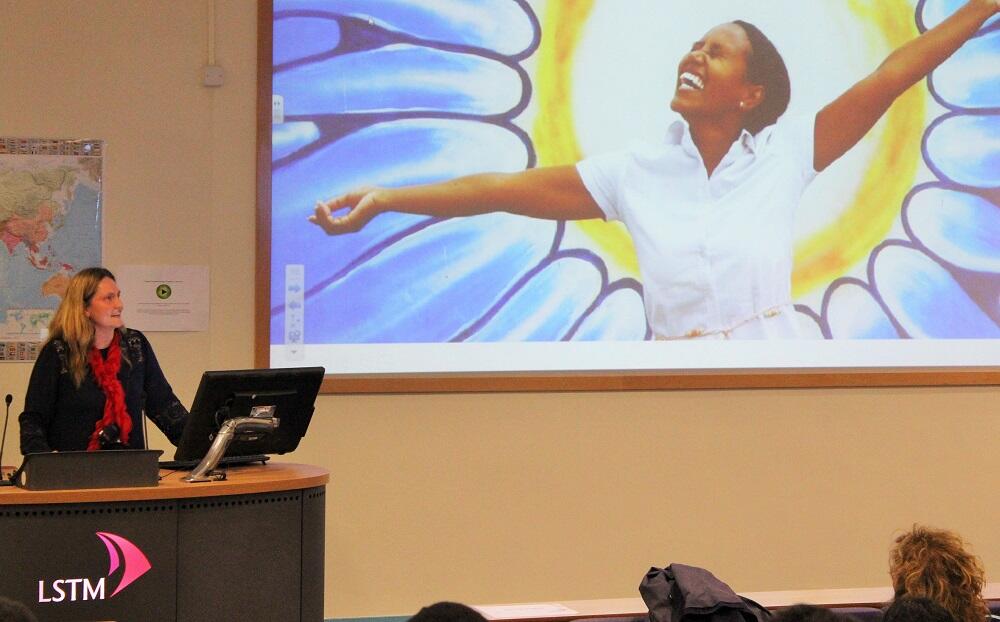
This week saw a plenary lecture by LSTM’s Sally Theobald, Professor of Social Science and International Health. Awarded her chair earlier this year, Professor Theobald’s lecture, entitled: Getting fit for the future: The centrality of gender, equity and politics to international research, was attended by staff and invited guests, including members of her family. It was introduced by LSTM’s Deputy Director, Professor Steve Ward who said: “Tonight is a celebration of Sally’s career to date. As LSTM’s first professor of social science she has developed an international network of colleagues, working together on research initiatives that have global reach. Sally joined us in 1999 and we are incredibly proud of her career development within LSTM and I hope she serves as an example to other female researchers and academics.”
With a disciplinary background of geography and development studies and a PhD in Gender, Health and Development, Professor Theobald’s lecture underlined the fact that success or failure in global health depends on how we approach gender, equity and politics. Drawing on her current research to explore some of the areas where these issues come to the fore, her lecture began by looking at health systems research in fragile and conflict affected contexts, which are contexts often neglected and marginalised in mainstream research portfolios.
Professor Theobald then explained the importance of action and investment in close-to-community providers, such as Community Health Workers, who provide a vital interface between communities and health systems, coming as they do from the communities they serve, with unique insights into social situations and develop trusting relationships. She then examined the ways that inequity based on issues like gender, class, geographical location, (dis)ability, and occupation impact on the effectiveness of Neglected Tropical Disease programmes, citing examples such as lymphatic filariasis, with its obvious symptoms causing prejudice within communities and the impact that female genital schistosomiasis has on gender equity.
Based on her time at LSTM Prof Theobald also reflected on how gender, equity and politics shapes the international health research endeavour; including juggling home and work responsibilities, institutional structures, partnerships, and the co-production of knowledge and concluded by pointing out the fact that addressing these issues is key to our readiness to address future health challenges within LSTM and when collaborating with partners.
Following her lecture Professor Theobald talked about how her personal life and experiences had influenced her professional career and thanked her children and family for their support in enabling her to progress in academia.